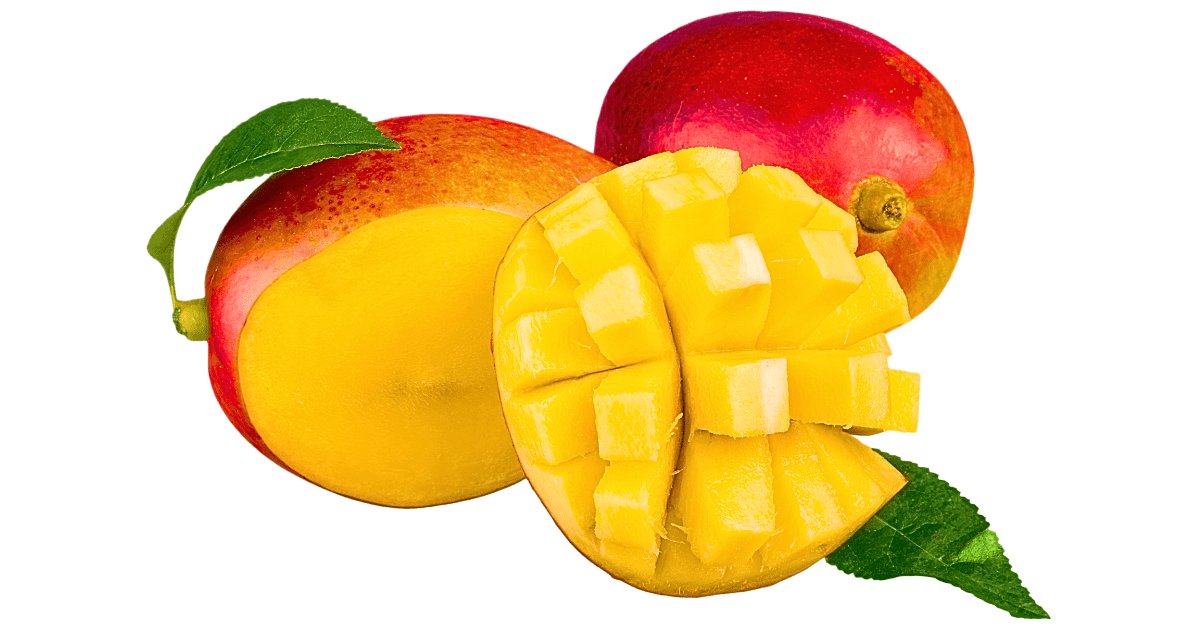Mango Mending: Vitamin A for Healthy Vision
As we peel back the layers of mango lore with the precision of a fruit connoisseur, let us indulge in the succulent saga of this tropical treasure.
Picture, if you will, the humble mango branching out from its ancestral groves, becoming a symbol of both sustenance and splendor. Imagine waking up to a world where this drupe, often reckoned as mere smoothie fodder, boldly ascends to the forefront of ophthalmic valor.
Here’s to the mango, the unsung hero in the realm of retinal rejuvenation, a juicy juggernaut daring to redefine the rubric of eye care. So, buckle up—because we’re not just talking about a burst of tropical flavor here, we’re digging into the fleshy pulp of innovation and eyesight preservation!
How Vital is Vitamin A for Our Eyes?

“The human eye is a marvel of biological engineering,” explains Dr. Susan Taylor, a renowned ophthalmologist, emphasizing the critical role of Vitamin A in maintaining this intricate system. Found abundantly in mangoes, Vitamin A is paramount for preserving night vision and supporting the function of the retina. According to the World Health Organization, a staggering 250 million children worldwide are at risk of vitamin A deficiency, making it imperative to spotlight nutrient-rich foods.
What Makes Mangoes a Superfruit for Vision?
Nutritionists often describe the mango as a “superfruit,” and this is not without reason. A single mango contains up to two-thirds of the daily recommended intake of Vitamin A for an average adult. Dr. Lana Greene, a nutrition scientist, states, “Incorporating mangoes into the diet can significantly contribute to the overall health of the eyes,” underlining their importance in a balanced diet.
Can Eating Mangoes Ward Off Eye Diseases?
Studies show that adequate intake of Vitamin A-rich foods like mangoes may reduce the risk of developing age-related macular degeneration (AMD), which affects millions of older adults. Dr. Jeffrey N. Rabin, an AMD specialist, remarks, “It’s fascinating to see the potential impact of mangoes on preventing long-term vision problems.” The implications for slowing down or even preventing this common cause of blindness could be revolutionary.
Are Children Getting Enough Vitamin A?
With one in five children not meeting their daily Vitamin A requirements, pediatricians are raising alarms about the potential for long-term eye health issues. “Suboptimal Vitamin A levels in children can lead to night blindness and other ocular conditions,” warns Dr. Patricia Gomez, a pediatric optometrist.
How Do Mangoes Compare to Other Vitamin A Sources?
Mangoes stand out against other common sources of Vitamin A. For instance, sweet potatoes and carrots are lauded for their beta-carotene content, but mangoes offer a more palatable choice for many, particularly children. “They’re not only nutritious but also delicious,” adds Dr. Greene, emphasizing their appeal.
Could Mango Consumption Reduce Global Blindness?
The International Agency for the Prevention of Blindness asserts that deficiency in Vitamin A is one of the leading causes of preventable blindness worldwide. By encouraging the consumption of mangoes in vitamin-deficient regions, there’s a glimmer of hope. “It’s a simple solution with the potential for profound results,” states Dr. Rabin.
What’s the Daily Prescription for Healthy Eyes?
While there’s no one-size-fits-all answer, experts like Dr. Taylor suggest that adding at least one mango to your daily diet could offer substantial benefits for eye health. “Think of it as a tasty prescription for your eyes,” she jokes, reflecting the more congenial aspect of her dietary advice.
Are Mangoes Beneficial for Those with Genetic Eye Conditions?
Even for individuals with genetic predispositions to eye conditions, a diet rich in mangoes could offer auxiliary benefits. According to recent studies, the vitamins found in mangoes may help mitigate symptoms or delay the onset of hereditary eye diseases, though Dr. Gomez cautions, “It’s not a cure, but every little bit helps.“
Can Mangoes Help with Dry Eye Syndrome?
Surprisingly, Vitamin A has been linked to improvements in Dry Eye Syndrome, a condition that affects millions of office workers globally. Anecdotal evidence suggests that workers who include mangoes in their lunch report feeling less eye strain by the end of the day, though more formal studies are necessary to confirm these claims.
What Does the Future Hold for Mangoes in Eye Care?
Looking ahead, the role of mangoes in eye care could expand significantly. With ongoing research, there could soon be more tailored dietary guidelines and perhaps even the development of mango-based supplements. For now, Dr. Taylor remains optimistic: “A mango a day could very well keep the optometrist at bay.“
The Sweet Vision: Wrapping Up the Mango Saga
In the end, as we peel back layer after lavish layer of mango lore and science, what remains is a fruit steeped in potential and sweetness—not just in flavor, but in its promise for our well-being. Like a masterfully composed symphony, each nutrient in the mango plays its part in the grand opus of eye health, with some science suggesting even a single daily mango can act as the dulcet tones preventing the crescendo of eye issues.
And what of the anecdotes—the office workers whose gaze remains steadfast on the unflickering screens without the burn of tiredness—could they be the unsung verses in this melody of mangoes? While the march of research presses on, revealing ever more of this tropical fruit’s merits, we savor the taste—and the vision—of a future where the mango sits enthroned, not merely in our diets but in the annals of eyecare revolutions. A future, perhaps, not so far away, where “a mango a day” is not just a catchy saying, but a cornerstone of ocular health.
So, until the science is as ripe and ready as the fruit itself, let this conversation be a nudge to look at the mango, not just as a snack, but as a vibrant, juicy ally in our quest for a life seen through a clear lens.
